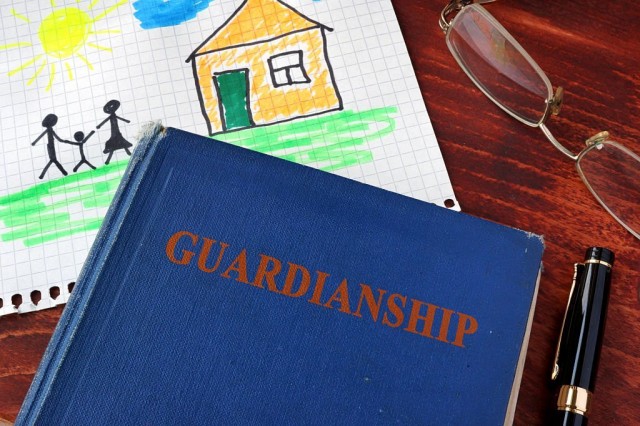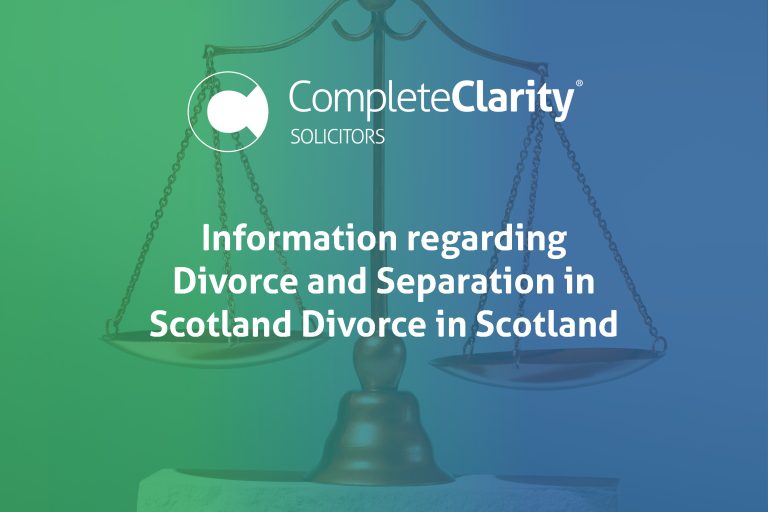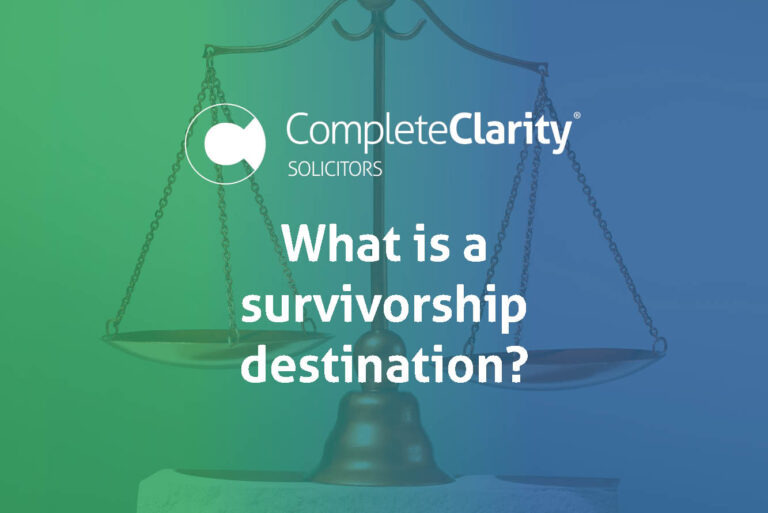What does guardianship entail, and what am I required to do?
Do you understand what it means to become a guardian? You may have heard the terms ‘Guardianship’ and ‘Guardian’ without understanding the actual meaning. This article addresses the guardianship of individuals, sometimes known as adults with incapacity. Here, we will explore what becoming a guardian entails.
What exactly is Guardianship?
When a person is unable to make crucial decisions for themselves due to short or long-term health problems, such as dementia, autism, or a learning disability, another person will need to assist them in making these decisions. Typically, this indicates that the individual concerned “lacks capacity” and requires a Guardianship Order. The designated individual will be known as the “Guardian” and will be responsible for making personal, health, and/or financial choices on the individual’s behalf.
When does an individual lack Capability?
It is tough to answer this question because capacity is not black and white. The capacity must be evaluated on an individual basis as opposed to being categorised by diagnosis. A person with a learning disability, for instance, is not always incapable of understanding and making some decisions independently. Typically, as a caregiver, you are aware of a person’s capacity. If we are uncertain as Attorneys, we will check with a General Practitioner or Consultant.
What is an Order for Guardianship?
A Guardianship Order is a judicial appointment authorising a person to act or make decisions on behalf of an incapacitated individual. A Guardianship Order may concern property and finances, personal wellbeing, or a mix of the two. When an adult has long-term difficulties and is over the age of 16, a guardianship application is likely to be appropriate. At least six months prior to a young adult’s 16th birthday, a Guardianship Application should be submitted on their behalf.
Which Powers are applicable?
In the Application for Guardianship, the Guardian’s desired powers will be specified. The Sheriff then determines whether to grant the permission. Common financial powers include the ability to handle bank accounts, sell property, or receive and administer self-directed support. Typical welfare powers include selecting where the person should live, preparing an appropriate care plan, bringing the person on vacation, and consenting to or denying medical treatment.
Who is eligible to become a Guardian?
Typically, a relative or close friend applies to become a person’s Guardian. Alternately, a professional, such as a lawyer or accountant, may apply. The Local Authority may be appointed if no other individual is available to serve as Guardian. One may submit an application to designate multiple guardians and/or substitute Guardians.
How can I apply to be a Guardian?
When developing arrangements for vulnerable individuals, it is essential to seek the counsel of a lawyer who specialises in this area of the law and has expertise representing clients with incapacity or sickness. Your lawyer will create an application to the Sheriff Court detailing the requested powers, the reasons why Guardianship is appropriate, and the recommended Guardians. Your lawyer will also get the reports that must be submitted with the application to the Sheriff Court. Two of these are medical assessments examining the individual’s capacity in relation to the desired powers. The third is an evaluation of the proposed Guardian’s qualifications. Then, your lawyer will appear in court on your behalf and present the reasons for your Guardianship application. After the Order is obtained, your solicitor will register the Order with the Public Guardian and ensure that you understand your responsibilities as Guardian.
When is a Guardianship required?
The sole scenario in which a Guardian must be appointed for an adult is when the adult has lost capacity and did not grant a Power of Attorney prior to losing capacity. In certain instances, the court will issue a Guardianship Order allowing someone the authority to make decisions regarding the incompetent adult’s welfare and/or finances and property. A Guardianship Order will be necessary when an adult is unable to handle their own affairs due to incapacity. This can apply to people who once had capacity but have since lost it, for instance due to illness, or to young adults who have reached the age of 16 and whose parents or guardians seek an order to continue protecting their interests in the future.
What is the definition of incapacity?
The Adults with Incapacity (Scotland) Act of 2000 is the statute to which we must refer for legal guidance when an adult is deemed to lack capacity. This Act defines an unable adult as one who is unable to act, make decisions, convey decisions, comprehend decisions, or remember decisions. Mental diseases, such as Dementia or Alzheimer’s Disease, or physical illness, accident, or damage, such as a stroke, can cause incapacity. A person can be born with a condition that renders them an incompetent adult at the age of 16. Adults who are deemed unable by medical professionals, independent lawyers, social workers, and mental health specialists are unable to make decisions regarding their care or finances.
Who may serve as a Guardian?
Anyone with an interest in the life of the adult can become their guardian. Multiple applicants are permitted, allowing shared Guardians to be chosen for the adult. In applications for sole Guardianship, the nomination of a substitute Guardian is recommended but not required. This nominee would replace the Guardian if they are unable to represent the adult. It is essential to understand that the Court will only issue a Guardianship order if it determines that there are no alternative options for managing the adult’s affairs. The court will always apply the least restrictive method for managing the affairs of adults. This is because the court acknowledges that even if an adult lacks mental ability, this does not revoke their rights. The Court must also be convinced that the adult will benefit from the Guardianship Order. It is crucial to evaluate which areas of the adult’s affairs you desire to oversee as guardian. Within the application, it must be mentioned whether welfare and/or financial powers are sought.
Guardian for Care and/or Protector of Assets
Most frequently requested are welfare guardianship powers. These abilities allow the Guardian to decide, for instance, where the adult should reside, consent to medical treatment on their behalf, and make day-to-day care decisions. When an adult does not have a Power of Attorney, welfare guardianship powers will be required and beneficial in the majority of situations. Typically, financial guardianship is sought when the adult has major financial problems that need to be managed on their behalf or when self-directed help is required to offer a care package for the adult. This includes, for instance, dealing with any property they own or managing any investments or stocks. When the finances of an adult are basic, financial guardianship is typically unnecessary. For instance, if the adult does not own any property or does not have significant assets that need to be handled, then the adult’s money may be able to be managed through ways other than financial guardianship. Among these are an Intervention Order, Access to Funds or Benefit Appointment. Once you have determined whatever guardianship powers you seek in connection to the adult, you can petition the court for guardianship powers.
What is the procedure for applying for guardianship?
Although the application procedure to become a guardian is frequently uncomplicated, it can be lengthy and emotionally draining. The Court must receive the application in the form of a Summary Application. These are the court documents that explain the authority you seek over the adult and why it is necessary and beneficial for the adult. This Application must be supported by three medical reports on the adult: a general practitioner’s report, a psychiatric report, and a report from a mental health officer. In some municipal areas, a scarcity of Mental Health Officers can cause considerable delays in the preparation of these reports, hence extending the procedure. After submitting the Summary Application and Reports to the court, a warrant will be issued. This warrant authorises the service of the Summary Application on all parties interested in the guardianship application. There will subsequently be a 21-day period during which anyone can object to the guardianship. After the 21-day period, a Hearing is scheduled. At this Hearing, the Sheriff will decide whether to grant the Guardianship Order if he believes that the order is required and will benefit the adult.
- Exploring Shared Child Custody in Scotland: Is a Father Entitled to 50/50 Custody?- Child Arrangements
- At what age can a child choose which parent to live with in Scotland?
- What is a c100 form family law Scotland – Solicitor
- Prioritising the Welfare of Children Scotland solicitor
- Prenuptial agreements are essential for safeguarding your assets during a divorce in Scotland
- What to expect during the initial phase of the divorce process Inspiration to rewrite Solicitor Scotland
- A child’s right to residence and contact – Child Law Solicitor
- Everything you need to know about surrogacy arrangements in Scotland
- Can a parent leave everything to one child in Scotland? understanding Scottish inheritance laws
- Demystifying divorce and dissolution Solicitor Scotland










